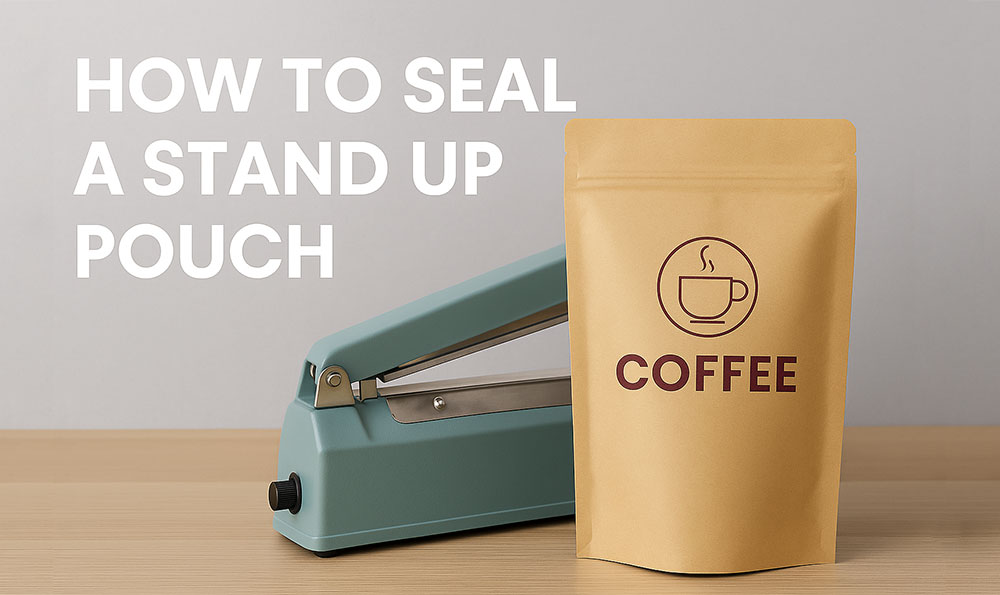Views: 99 Author: Site Editor Publish Time: 2025-11-06 Origin: Site

Stand up pouches have become one of the most popular packaging solutions for food, coffee, snacks, and other consumer goods. Their lightweight design, reclosable features, and excellent shelf presentation make them ideal for both brands and consumers. But to ensure product freshness and safety, it's important to understand how to properly seal a stand up pouch.
In this guide, we'll explain everything you need to know about sealing stand up pouches — including sealing methods, temperature settings, and tips for getting a professional airtight finish.
1. Why Proper Sealing Matters
The seal is one of the most critical parts of any pouch. A strong and consistent seal helps:
Prevent leaks and contamination
Preserve freshness and flavor
Maintain product shelf life
Enhance brand image with a professional finish
Whether you're packaging organic coffee and tea, dried fruit, pet food, or protein powder, a proper seal ensures that your product arrives in perfect condition.
2. Common Sealing Methods for Stand Up Pouches
There are several methods you can use depending on your production scale and pouch material:
a. Heat Sealer
The most common method involves using a heat sealing machine that applies heat and pressure to bond the inner layers of the pouch.
Ideal for: PE, PET, compostable PLA, or recyclable mono-PE pouches
Best for: Small to medium businesses

b. Impulse Sealer
Impulse sealers generate heat only when pressed, making them safe and energy-efficient.
Suitable for: Thin to medium-thickness materials like kraft paper stand up pouches
c. Band Sealer
For higher-volume packaging, a continuous band sealer provides fast and uniform seals.
Ideal for: Industrial use, coffee roasters, and food producers
Advantage: Adjustable temperature and speed for different materials
3. Step-by-Step: How to Seal a Stand Up Pouch
Fill your pouch with the desired product, leaving at least 1–2 cm of headspace.
Remove air to prevent bloating and oxidation (especially for coffee or powders).
Preheat your sealer to the correct temperature.
Align the top of the pouch between the sealing jaws.
Press and hold for 2–3 seconds (or as recommended by your sealer).
Allow the seal to cool before handling.
Check the seal quality — it should be smooth, without wrinkles or gaps.
For resealable options, you can also add zipper seals or tear notches for user convenience.
Learning how to seal a stand up pouch properly is key to maintaining product quality and brand consistency. With the right sealer, material choice, and temperature settings, you can achieve airtight and attractive packaging that keeps your customers satisfied.
If you're looking for custom eco-friendly stand up pouches, contact BioPack today. Our team can help you select the best material and sealing solution for your product.